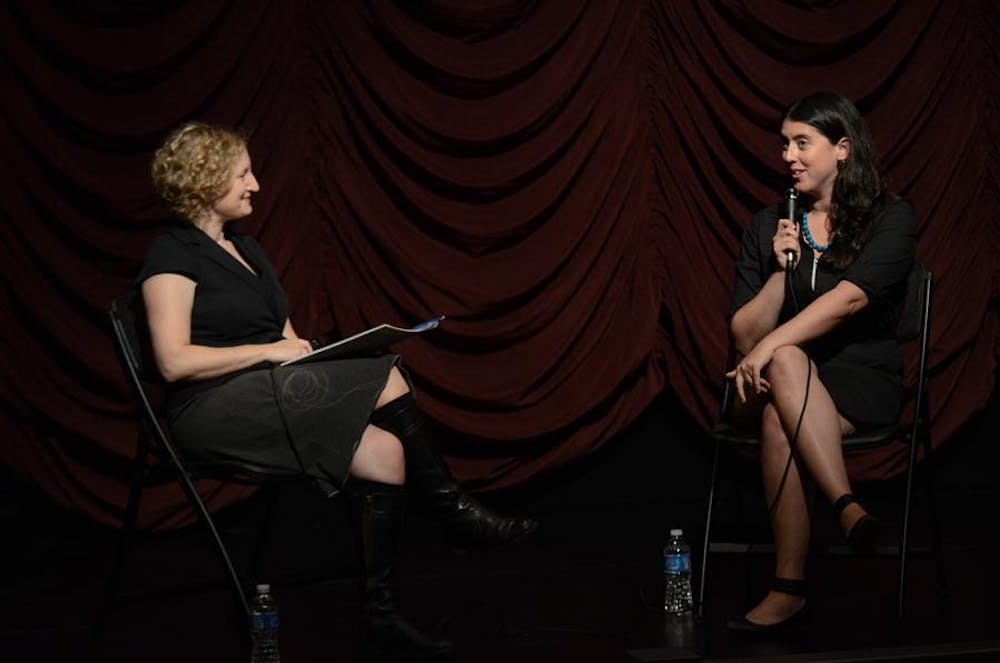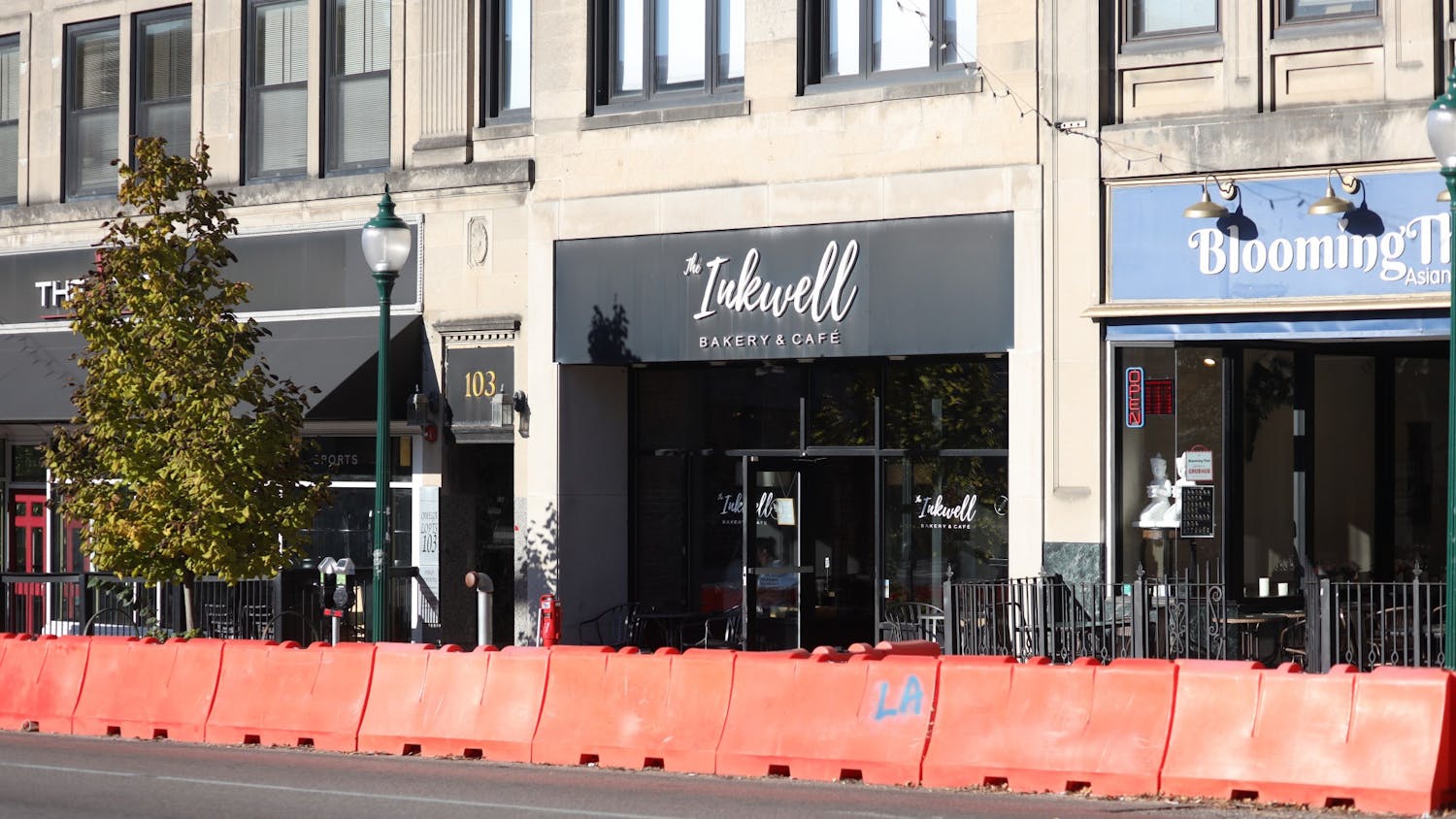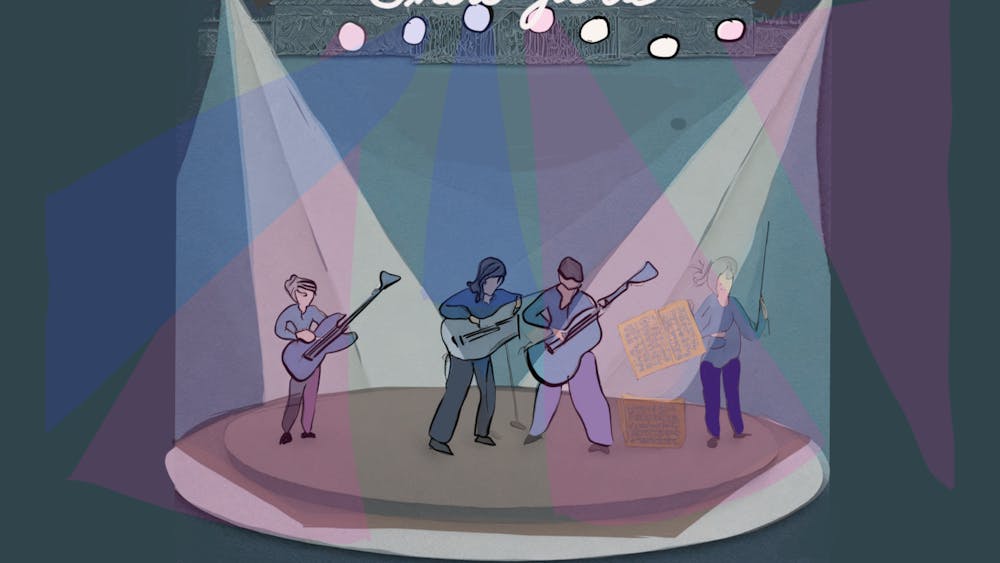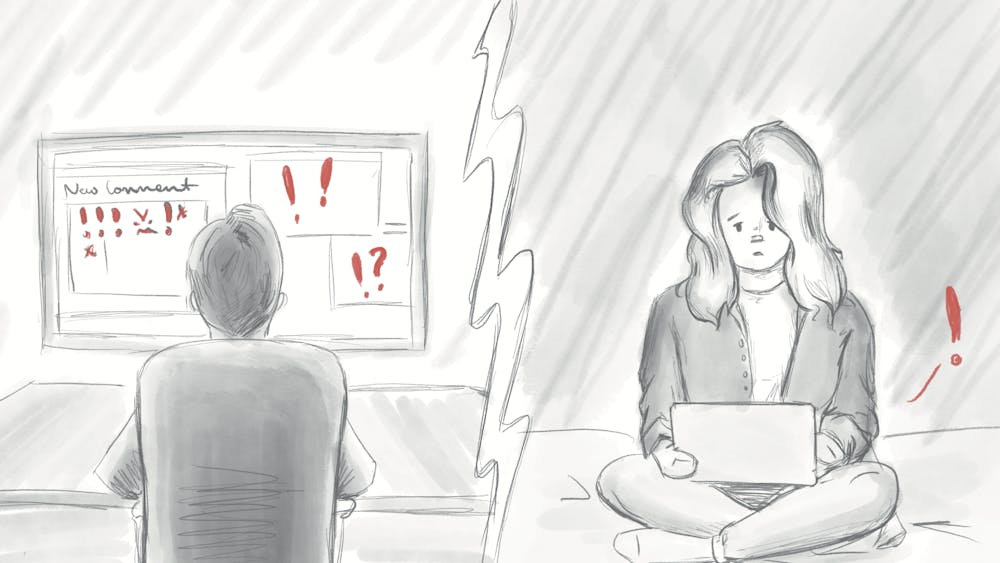The middle finger on the cover of “Ai Weiwei: Never Sorry” has become synonymous with the message sent by Alison Klayman’s debut film.
Avant-garde artist Ai, considered China’s Andy Warhol, is an outspoken critic of his country’s government.
Thursday afternoon, Klayman discussed her documentary with Stephanie DeBoer, assistant professor for the Department of Communication and Culture at IU Cinema.
In December 2008, Klayman began filming Ai when a friend asked her to make a short film about the artist’s photography exhibit.
At the time, Klayman was living and working as a freelance journalist in China.
The year she began filming, thousands of citizens were killed when an earthquake in Sichuan Province caused school and government buildings with faulty structures to collapse.
The government refused to release the names of the child casualties.
The lack of government response led Ai to start a citizen’s investigation project of the tragedy. Ai and his team almost published the names of the killed students on his blog, which was eventually shut down.
In summer 2009, Ai returned to Sichuan Province to support an activist who had been jailed for supporting Ai’s cause.
Local officials found Ai at a hotel where he and his supporters stayed while attending the activist’s trial. The police physically hurt him.
About a year and a half later, Ai went to the Chengdu to confront the police about the hotel conflict.
Klayman said accompanying Ai on this trip was tense.
“The first fear was that I didn’t jeopardize anybody else’s safety, and I didn’t want to jeopardize the purpose of the mission,” Klayman said. “It was for Weiwei to go and accomplish what he wanted to accomplish, and I didn’t want ... to be the element that made things go awry.”
Both Klayman and New Yorker correspondent Evan Osnos were asked to step into another room and erase their footage since they didn’t have permission to film the police.
Klayman said she gave them an empty tape.
At the event Thursday, Klayman said she had the freedom to film Ai during his day-to-day life and overseas trips.
“It was really interesting because I felt like just the challenge of the movie was to show his daily life ... if you did it right, you would get the piece of him doing this subversive act,” Klayman said. “But he was accomplishing a lot and getting away with a lot.”
Ai’s 81-day detainment strained the wrap-up of what Klayman called her “labor of love.”
On the morning of April 3, 2011, Ai planned to leave the country for business. Police seized him at the Beijing Capital International Airport and detained him for three months.
The government claimed that Ai’s design company, Beijing Fake Cultural Development, had evaded $2.4 million in taxes, according to a New York Times article.
However, Ai’s appeal that the Chinese tax authorities had violated their own procedures by violating his home and detaining him was denied in July.
The film will show at 9:30 p.m. Friday and 3 p.m. Saturday at IU Cinema.
The prospects for commercial theaters in China showing the film are grim. Ai still cannot travel outside the country.
“Weiwei’s story, and seeing the way the whole world had reacted to the film — who knows what the possibilities are when people start to spread it around in China?” Klayman said.
Cinema screens 'Ai Weiwei' documentary

Get stories like this in your inbox
Subscribe





